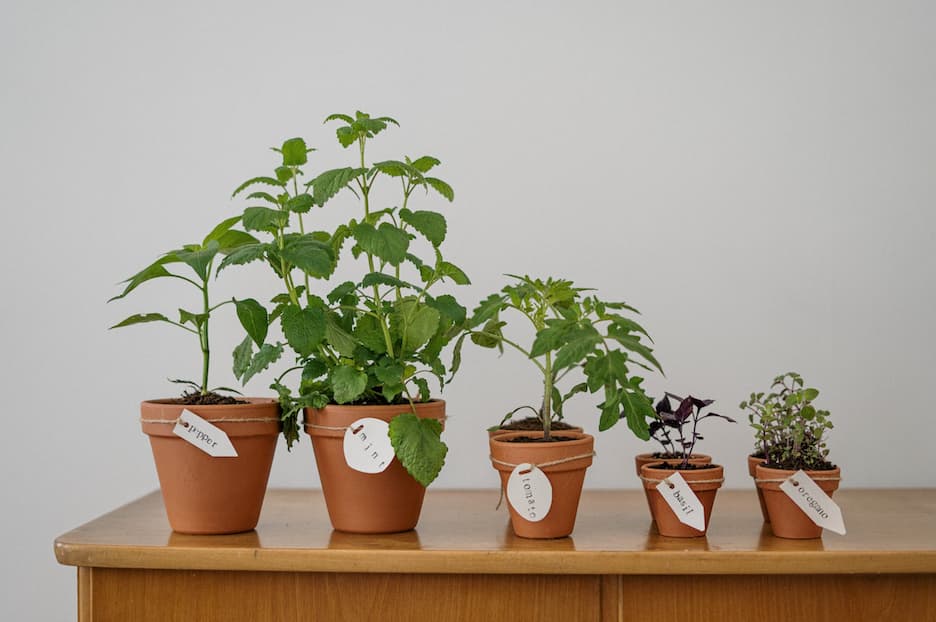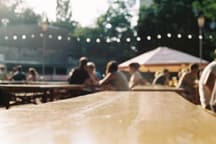How to Be a More Sustainable Student
16 March 2021 • 7 min read
Looking to improve your carbon footprint? Here's how to make some quick and easy sustainability changes 👇
Whether you're a mega sustainable student or you’re just getting started on your journey to being more eco-friendly, we can all do a little bit more to help the environment.
Whilst many of us are conscious about sustainable living, the temptation to cut corners is strong – but green living doesn’t have to be a chore. Sustainable living for students doesn't need to reinvent the wheel – even just a few changes in your daily routine can make all the difference.
Here are some top tips to help you start living more sustainably.
Get your recycling routine sorted 🙌🏼
When you’re living in student accommodation, keeping a handle on recycling isn’t always easy. With the amount of rubbish that builds up in student life, a one-bin-for-everything approach requires the least amount of effort. And, when it comes to student recycling, no one wants to be the nagging flatmate. But hear us out...
Recycling is one of the easiest ways to live a more sustainable lifestyle. Recycling just one single glass bottle can save enough energy to power your laptop for half an hour. If you recycle just one plastic bottle (although we recommend avoiding single-use plastic where possible), you’ll save enough energy to power a lightbulb for over three hours!
What puts people off recycling is that it seems like more of a hassle than it really is. Using different bins in your kitchen will help you and your housemates resist the urge to chuck everything into the same bag. The easier you make it for yourself, the more it becomes routine.
Stop with single-use plastic ✋🏽
While manufacturers of food and drink products are increasingly trying to move away from plastic packaging, it’s still everywhere. Here are a couple of easy sustainability swaps you can make:
Plastic water bottles → reusable water bottles
In the UK, we go through 15 million single-use plastic bottles every day. Reusable water bottles are trendy for a reason – they’re literally saving the planet. If you haven’t bought yourself one already, make it a priority. You might even find it helps you drink more water, so it’s a win-win!
Plastic toothbrush → bamboo toothbrush
A plastic toothbrush can take over 400 years to decompose! Try swapping your harmful plastic toothbrush for a stylish bamboo toothbrush.
Plastic bags → Material or reusable bags
Don’t be the person who’s still using single-use plastic bags. Plus, you get charged 5p per bag! So that'll save money as well.
Plastic straws → Paper or reusable straws
No doubt you’ve seen the pictures of poor turtles with straws stuck up their noses, but straws can be harmful to all types of wildlife and cause all kinds of environmental issues. Try using a paper straw or purchasing a reusable straw to take on nights out. Better yet, skip the straw and try just sipping your drink!
Disposable coffee cups → Reusable cups
Although disposable coffee cups are usually mostly made of paper, that doesn’t mean they're innocent. Most of them are lined with plastic to stop drinks from leaking, which means they can’t be recycled. Try purchasing a reusable coffee cup if you’re a coffee fanatic. Best of all, you can get 25p off at Starbucks (at lots of discounts at other chains as well) if you use a reusable cup!
Be water wise 💧
We all love a long, hot shower – but let’s be honest, we could all spend less time pondering the fabric of the universe when we’re in there.
The average shower uses about 5 gallons of water per minute, so even just cutting your shower down by 2 minutes can save 10 whole gallons! The same goes for brushing your teeth. Apparently, leaving the water running wastes an average of 4 gallons!
Water is such a valuable resource, and one we are all guilty of taking for granted, but these little changes can amount to a huge reduction of waste in the long-term.
Avoid passive electricity ⚡️
Other than your refrigerator, your electrical appliances should be switched off when they aren’t in use. Try to get into the habit of turning things off at the plug when you’re finished using them.
Your laptop and phone are great examples – when you’re batting away at an essay on an all-nighter, you might not notice that your laptop finished charging hours ago.
Similarly, when you wake up in the morning and disconnect your phone from the charger, how often do you check to make sure it’s off at the wall?
To go one step further, check your plugs whenever you leave the house – think of it like a keys-phone-wallet check for the environment. Plus, it'll save energy and help your wallet!
Forget fast fashion 💰
Fast fashion is cheap and trendy clothing mass-produced at lightning speed to reflect current trends and styles.
But why is this bad for the environment? Fast fashion retailers usually use harmful textile dyes which can pollute clean water and cheap fabrics, like polyester, which shed damaging microfibres. Not to mention these clothes are designed to be worn only a few times while they’re in style and then discarded.
Try vintage or second-hand shops. New vintage stores are springing up everywhere, and they’re a great way to get quality clothes at a fraction of the price!
Fight against food waste 🌯
Eyes bigger than your stomach? It happens to the best of us. Before you start scraping your leftovers into the bin, grab a jar or container and pop your leftovers in the freezer for another time. Not everything can be frozen for reheating, so it’s worth doing a quick Google search if you’re not sure.
Soups, smoothies, stews, and curries will all be fine to freeze and defrost later. When the time comes, and you’re too tired to cook, you can thank your past self.
Another great way to reduce food waste is to use an app like Too Good to Go. This app lets you buy leftover food from cafes and restaurants at huge discounts that would otherwise be thrown away.
Shop local 🛍
Shopping locally is a simple way to cut down on the environmental impact of your food. Think about it this way: when you shop at the supermarket, some of the items you buy have travelled over 1500 miles to reach you.
Locally sourced food cuts that down considerably. There’s no need for shipping facilities, packing facilities and refrigeration, and it’s a great way to support your local community. We couldn’t be more grateful to all the independent grocery shops who kept our cupboards stocked when delivery slots with the big-name supermarkets were few and far between.
There are also more and more shops dedicated to reducing plastic waste. For example, Sheffield Students’ Union has its own sustainable shop on campus that sells dried food, household products, toiletries, and kitchenware all free from plastic packaging. Just turn up with your own container and stock up!
Got any more tips on student sustainability? Share them with us on Instagram!




